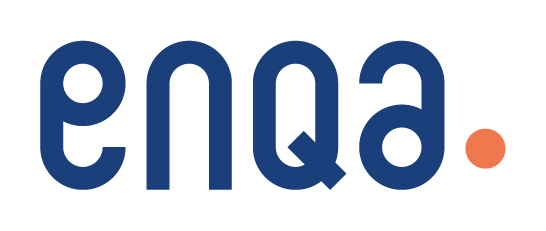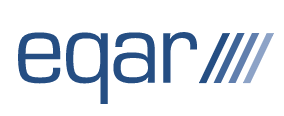 EAEVE is listed in the European Quality Assurance Register for Higher Education
EAEVE is listed in the European Quality Assurance Register for Higher Education

News
Establishments' Status
Table of VEEs' ESEVT and EAEVE Membership status
open
Call for applications
President of EAEVE
Call for applications for the position of President of EAEVE
EAEVE Secretary
Call for applications for the position of EAEVE Secretary
Job description
ESEVT Expert applications welcome
Application Form and Acceptance Procedure
watch the promotional video
Student Expert on an ESEVT Visitation
watch the promotional video
Announcements
Veterinary Educational Researcher's Handbook
The handbook was created in a wide international collaboration, with the aim to support research on teaching, learning and education in the veterinary field.
Available at https://edarxiv.org/dn6e2/
COST action BETTER
(Biosecurity Enhanced Through Training Evaluation and Raising Awareness)
Call for colleagues involved in biosecurity on livestock farms
Please visit the BETTER site and the CA20103 site
ECCVT DT&AI WG Final Report
open
ECCVT press-release about Digital Technologies and the use of Artificial Intelligence (DT&AI)
open
Projects
Erasmus+ VetRepos project
A shared item repository for progress testing in European veterinary schools
Upcoming Meetings
CIQA meeting
28 May 2024
Coordinators' meeting
28 May 2024
ECOVE meeting
29 May 2024
ExCom meeting
21 February 2024
5 April 2024
29 May 2024
General Assembly & Educational Day
30-31 May 2024, Alfort (Paris)
12-13 June 2025, Dublin
User login
History of the European System of Evaluation of Veterinary Training (ESEVT)
Brief History, Concept and Function
1985
The Evaluation System was conceived as a peer assessment programme and was started and financed (1985-1993) by the European Commission on the recommendation of the Advisory Committee on Veterinary Training (ACVT). At the time, the legislation governing basic veterinary training in European Union Member Countries (Directives 8/1026 & 1027/EEC) laid down minimum compulsory requirements.
1985-89
A Pilot Study was made using visits to Utrecht, Cambridge, Liège, Hanover, Copenhagen, Dublin, Alfort, Milan, León, Thessaloniki and Lisbon as reference examples.
1992-2000
The ACVT decided to recommend that a permanent system be set up. This was done with the development of a detailed document on Standard Operating Procedures (SOP), but the European Commission, as a result of extreme budgetary constraints, asked the EAEVE to set up and run the system on a self-financing basis in 1994.
2000
The ACVT was disbanded by the European Commission and the Joint Education Committee of EAEVE and FVE (JEC) was formed. At the same time a revised SOP was introduced.
2003
A further change to the Standard Operating Procedures was agreed.
2005
New EU Legislation in the form of Directive 2005/36/EU repealed the original Directives and realigned the requirements for Veterinary Training.
2007-08
Completely reworked Standard Operating Procedures were agreed and the major change was the separation into Stage 1, where the evaluation assesses whether an establishment conforms with Directive 2005/36 and, if so, recommends “Approval” and Stage 2, where the evaluation assesses that the establishment is following the generally accepted and appropriate academic standards and provides learning opportunities of acceptable quality, if so, recommends “Accreditation”.
The Joint Education Committee of EAEVE and FVE (JEC) was renamed the European Committee on Veterinary Education (ECOVE).
2009-2011
There were some minor changes in the SOP and the number of the visited and approved schools have been continuously growing. The European System of Evaluation of Veterinary Training has become widely accepted in the veterinary community, which facilitated more and more schools to undergo an evaluation. The first Stage 2 evaluation was carried out in 2009 and since that time the demand for Stage 2 evaluation is growing.
2012-2014
The number of evaluated Establishments were further growing with a clear interest to the European System of Evaluation of Veterinary Training from several Establishments outside Europe. An SOP Working Group was set up to review the SOP. EAEVE had applied for membership in the European Association for Quality Assurance in Higher Education (ENQA) and EAEVE became an Affiliate member of ENQA. The Statutes were amended in order to further encourage Establishments to undergo visitation.
2015-2017
2015 was a milestone for EAEVE with the celebration of 30 years of the ESEVT.
A Strategic Plan 2015-2020 and SWOT analysis were developed. The Plan established a clear vision for EAEVE to become a more effective and competitive accrediting body of veterinary training with official recognition at a European level. To promote transparency, a holistic and thorough list of EAEVE Establishments’ Status was endorsed by the ExCom. In line with the ENQA recommendations, the Coordinators’ group launched an E-learning course to ensure the appropriate training of experts participating in evaluation Visitations.
In order to propose recommendations for improvement of ESEVT in general and of veterinary education in Europe in particular and to identify the main challenges for the future, a System Wide Analysis of the ESEVT 2011-15 was developed.
The EAEVE members and stakeholders took an active role in the revision of the SOP 2012, which eventually was unanimously approved in May 2016 by the EAEVE General Assembly (in Uppsala) and by the FVE board. The SOP 2016 is a document of consensus on important minimum standards of quality and is closer to the procedures and standards of other cross-national peer assessment bodies (AVBC, AVMA, RCVS). The SOP 2016 also seeks to simplify procedures while following the Standards and Guidelines for quality assurance in the European Higher Education Area (ESG 2015). To encourage and support members in achieving the standards of quality defined by the ESEVT, EAEVE organised a QA seminar for its ESEVT QA experts as well as a QA training course for the EAEVE member Establishments in each of the eight Regions. The increasing confidence in the ESEVT is evident through the growing number of accreditation visitations to Veterinary Education Establishments in Europe and beyond.
To facilitate the ENQA external review in November 2017, a Self-Assessment Report (SAR) was prepared. The SAR was the result of intensive reflection on the internal functioning of EAEVE and its constituent committees, especially concerning the functioning of ESEVT. The ENQA external review took place from 27-29th November 2017 and resulted in EAEVE achieving ENQA membership on 19th April 2018.
For the first time, official requests for ESEVT Visitations arose from Russia and from several non-European countries such as Egypt, Japan, Morocco, Senegal and Tunisia.
2018-2019
2018 was a year of expansion for EAEVE with the completion of seven Consultative Visitations to several Establishments in Russia, Tunisia and Ukraine, thereby enabling the admission of seven new members into the Association. EAEVE continued to strengthen its international connections during this time, most notably by requesting and securing full membership within the International Accreditors Working Group (IAWG) in 2018. This was a key step forward in the complex process of planning and conducting Joint Visitations with other members of the IAWG on an equal footing. A further achievement was the decision by the French agency for quality assurance (HCERES) to rely on ESEVT for the evaluation of French Veterinary Education Establishments.
In 2019, the revision of the SOP 2016 was brought to fruition with the endorsement of the SOP 2019 by the EAEVE General Assembly (Zagreb). At the same General Assembly, Articles 4-8 of the EAEVE Statutes were modified, thus introducing different categories of membership; instead of affiliates and full members, EAEVE now consists of candidates, associates and full members. The first objective in doing this was to link the members’ membership category to their location inside or outside of Europe in consideration of the increasing number of requests to become members of EAEVE (within and outside of Europe) and thus be evaluated by the ESEVT. The second objective was to make the membership categories more consistent with the SOP 2019 and better understandable for the public.
A further development in 2019 was the establishment of an SOP Working Group by the Director of ESEVT with the sole duty of continuously enhancing the evaluation system and its implementation by taking into consideration the suggestions for improvement made by EAEVE members and stakeholders, as well as the latest developments in veterinary education and training and the veterinary profession as a whole.Yet another milestone was the completion by 2020 of the System Wide Analysis for the period 2016-2019 which both reviewed the recommendations and achievements of the 2011-2015 System Wide Analysis, and took stock of the new future challenges for the ESEVT. One such achievement was the update of the E-Learning course for ESEVT Experts in accordance with the new SOP 2019 and the re-structuring of the E-Learning course according to the core competencies required of Experts. This new E-Learning course will be launched in 2021.
2020-
2020 was an extraordinary year for everyone and no less for EAEVE. The SOP WG was quick to work on an emergency procedure which would enable the ESEVT to adapt to, and navigate, the COVID-19 pandemic. The decision was made early on not to carry out fully virtual ESEVT Visitations but to adapt the rules whilst maintaining EAEVE’s values and standards. As 31 Visitations had been planned for 2020, advising these Establishments on how to proceed with their planned Visitations or unavoidable postponements was crucial. An addendum to the SOP entitled “Exceptional Transitory Amendment of the SOP (due to COVID-19)” was approved by the Executive Committee and endorsed by the General Assembly in 2020. According to the official guidelines for the postponement of a Visitation laid out in this document, 9 of the 31 Visitations which were planned could be completed, with some of them being carried out with a mix of on-site and virtual Experts.
The 33rd EAEVE General Assembly in 2020 was another novel yet successful experience thanks to the technical expertise of Oniris in Nantes, who made it possible by hosting the online General Assembly on 3rd December 2020. Several key decisions were made during this General Assembly such as the election and re-election of officers, the amendment of the SOP 2019 based on the Interim Report of the SOP WG, as well as the presentation of the Strategic Plan and SWOT analysis for the period 2020-2025.
2021 continues to bring with it challenges and the ripple effects of 2020 will be felt for some time yet, but EAEVE will continue to support and work closely with its members and stakeholders to navigate this situation and continue to evolve.
Concept
Briefly, the concept is one of an internal European professional peer evaluation system of veterinary educational establishments.
Function
The basic detailed procedures are set out in the Standard Operating Procedures (SOPs).

